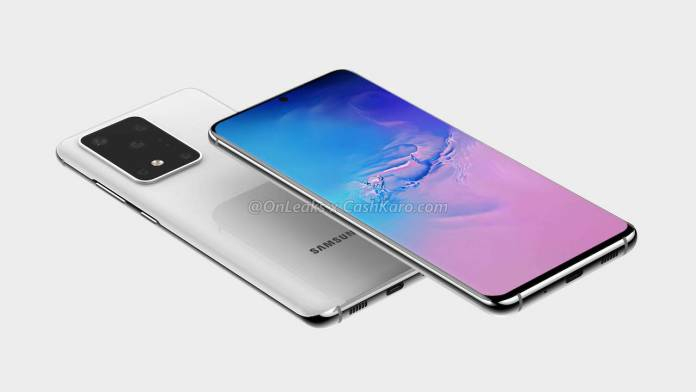Over the past year, we saw many improvements in smartphone displays, but perhaps the biggest change was the rise of high screen refresh rate displays, that offers a smoother visual and touch experience.
Although a very subtle change, a higher screen refresh rate results in better overall user experience by making scrolling and navigating the UI seem buttery smooth. OnePlus included a 90Hz 'Fluid' OLED display on the OnePlus 7 Pro, 7T and OnePlus 7T Pro. Asus went all-out with its most powerful gaming centric flagship, the ROG Phone 2 by equipping it with a 120Hz refresh rate display.

Samsung Galaxy S20 series will have 120Hz displays
The latest rumor is that Samsung could join the high screen refresh rate party very soon. According to a report from SamMobile, citing "highly reliable sources," Samsung's upcoming flagship series – the Galaxy S11 aka Galaxy S20 – will feature displays with 120Hz refresh rate.
The rumors of the Galaxy S20 sporting a 120Hz display first surfaced when Samsung announced it's next generation SoC, the Exynos 990, which would support 108MP cameras and up to 120Hz displays.
More proof supporting the report
Recently, a hidden menu inside the beta build Samsung's One UI revealed an option to switch between 60Hz and 120Hz refresh rates, which also suggests the possibility of the next flagship phones 120Hz display. Meanwhile, none of the current generation Samsung flagships support high refresh rates beyond 60Hz.
Also, since Samsung's flagships have always had some of the best smartphone displays, there is a very high probability that the report is accurate.
Will all Galaxy S20 smartphones have 120Hz displays?
It is unclear whether all the phones in the Galaxy S20 family will get the refresh rate upgrade or if the 120Hz treatment will be limited to only the standard Galaxy S20 and the bigger Galaxy S20 Plus models.
Nonetheless, a higher screen refresh rate allows for higher frame-rates thus opening the doors for smoother overall performance especially while playing graphics-extensive games. Refresh rate means the number of times a display changes images or frames and the higher the rate, the smoother the display appears and feels.
The bigger batteries rumor makes more sense now
However, higher screen refresh rates also eat up more battery than a standard 60Hz refresh rate, but since the Galaxy S20 series will have significantly improved battery capability it shouldn't be a major concern.
Samsung is expected to launch it's next flagship lineup which succeeds the Galaxy S10 series during a special UNPACKED event on February 11 in San Francisco, alongside the successor to the Galaxy Fold.
Galaxy S11 or Galaxy S20, what will it be?
The upcoming flagship series which should technically be called Galaxy S11, is being tipped to be called Galaxy S20 in some of the latest rumors. The leap in the sequential naming order could represent many things, but the most obvious reason seems to be the leap in technology that the phones will pack, and the 120Hz display might just be one of these.








